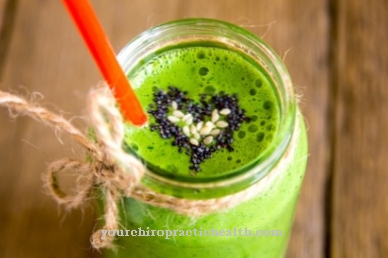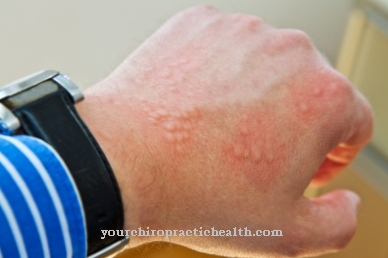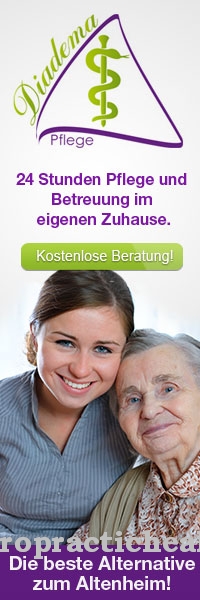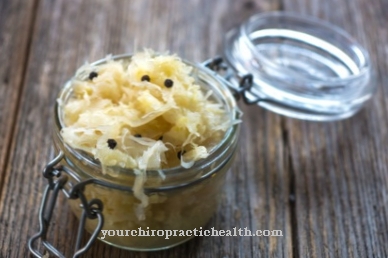Dental health has a crucial impact on overall physical wellbeing. Anyone who does not take care of dental care must expect painful consequences that affect well beyond the jaw area. Inflamed gums and teeth are riddled with bacteria that can spread throughout the body via the extensive network of blood vessels. Bacteria responsible for tooth root inflammation can even trigger inflammation in the sinuses or in the heart valves.
When dead teeth put a strain on the immune system

Chronic inflammation of the gums is suspected to favor heart attacks and strokes. This is the conclusion of the Swedish case-control study PAROKRANK. One of the main reasons is the body's reaction: if the bacteria get into the bloodstream, they can cause blood clots, which in turn can cause serious damage to the heart and brain.
Why do inflamed teeth damage the organism?
If nerves in the tooth have died, a tooth begins to decay. A milieu develops that is ideal for bacteria. They nestle in the jawbone, which then has foci of inflammation. In the worst case scenario, the inflammation becomes chronic. Chronic inflammation weakens the entire immune system, because the bacteria and pathogens spread throughout the body via the bloodstream.
Tissues and other organs can be affected. So that it doesn't get that far, children should be introduced to regular dental care. If dental care becomes an integral part of everyday life, the risk of gingivitis, tooth decay and the associated health-damaging consequences decreases.
Prophylaxis in babies
The teeth are created in the unborn child during pregnancy. A balanced diet for the expectant mother ensures healthy tooth development. After birth, the child is often supplied with breast milk, from which it also takes in minerals that are important for the formation of the teeth. Even before the first teeth show up, parents should be careful with the subject of dental health.
Microorganisms settle in a baby's still toothless mouth. The oral mucosa provides a welcome basis for this. Most microorganisms are harmless, others are even important for a healthy oral flora, but there are also microorganisms that cause tooth decay. Proper oral hygiene is therefore particularly important with a baby.
Caution: danger from adults
There are bacteria in the parents' or other people's saliva that can cause problems in the child's mouth. They can unbalance the oral flora. The bacteria are usually transmitted unconsciously and automatically, for example by licking the fallen porridge or pacifier in order to "clean" the utensils and put them back in the child's mouth.
In principle, there is nothing wrong with that, but parents should be aware that bacteria that cause caries can get into their baby's mouth in this way. When in doubt, it is healthier to rinse the utensils with water instead of wetting them with adult saliva.
Dental health in young children
If babies and toddlers suckle their thumbs, there is a risk of jaw malformations and misaligned teeth. Sucking on the pacifier is also not beneficial, but is less harmful than sucking on the thumb, since less strong forces act on the jaw and teeth. Orthodontic sucking means sucking on the pacifier. In addition, parents should make sure that their baby does not constantly suckle the bottle.
If the vial is filled with liquid, there should be no sugar in it. If there is only water in the bottle, caution can still be required. Because water dilutes the saliva, which dilutes the protective shield and in turn gives the bacteria easier access to the oral mucous membranes in order to cause damage.
When the first teeth are there, the baby should only consume unsweetened and acid-free drinks and food. The first teeth are particularly sensitive to the danger that arises from contact with sugar and acid. The effect is particularly problematic at night because it is more intense than during the day. During the day, the body produces more saliva and protects the teeth.
During the night, saliva production is reduced so that aggressive acids can cause greater damage. Against this background, the so-called calming bottle in the evening to fall asleep is not a good choice, regardless of which drink is in the bottle.
| Tip: These instructions for parents, published by the German Dental Association, summarize other important instructions for prophylaxis in children. |
Dental care should go without saying

Parents should show their children that brushing their teeth is an everyday routine that, like sleeping and eating, is a natural part of it. Children practically automatically adopt good dental hygiene from their parents, as they tend to imitate them. The same applies to visits to the dentist. Parents should take their children to their own dentist appointment at an early stage.
Ideally, it is a dental practice that attaches great importance to prophylaxis and has a focus on pediatric dentistry. This applies, for example, to the Zahnvilla Wassenberg. This offers parents and children introductory sessions. In this way, children learn in a playful way what prophylaxis means.
It also removes their fear of the dental equipment, the dentist, the treatment room and the entire process in the dentist's chair. A later visit to the dentist is then much more relaxed for the little patients and they are not frightened in the unfamiliar environment.
If you are looking for a specialist specializing in pediatric dentistry, you can do specific research on the website of the responsible dental association in your state, as offered, for example, by the Hesse State Dental Association.
Brush baby teeth
When parents see their first teeth poking through their jaws, the tooth brushing procedure starts with aids. A real toothbrush is not yet necessary, a damp cotton swab or a finger cot made of rubber or cellulose do their job. Parents put fluoride toothpaste, which has a low concentration, on the aid.
The fluoride content should be less than 0.05%. For the small mouth, a small amount about the size of a pea is sufficient. Fluoride promotes the storage of minerals in the tooth enamel, which improves the protective layer. If the enamel is well developed, the teeth are more resistant to tooth decay.
| Tip: It is best for parents to avoid a toothpaste with a sweet taste so as not to encourage children to swallow. |
Practice brushing your teeth regularly
Parents should start to get used to daily teeth cleaning in early childhood. If the child accepts the procedure, parents can add it to their routine in the morning and evening. From the age of 2-3, children should brush their teeth themselves.
Fine motor skills are not yet sufficiently developed, so that parents also have to clean up. As a rule, however, children have learned to brush their teeth on their own by the time they start school. From now on, the toothbrushing ritual can be established together in the morning and evening in front of the bathroom mirror as an integral part of the daily routine.













.jpg)

.jpg)
.jpg)











.jpg)